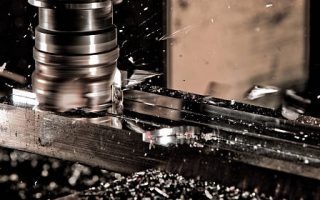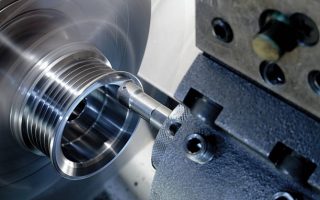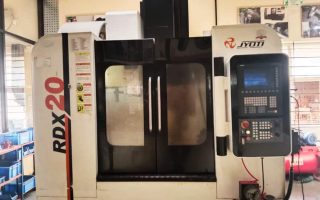
Introduction
The acronym CNC, or Computer Numerical Control, has become a cornerstone in the world of modern manufacturing and machining. However, beyond its technical application in industrial settings, CNC can stand for various meanings depending on the context, including urban slang, technology, and even social movements. This research paper aims to explore the diverse interpretations of CNC, with a primary focus on its industrial significance, while also delving into its other meanings in urban contexts. By understanding the multifaceted nature of CNC, we can gain a more comprehensive view of its relevance in different sectors. Additionally, we will discuss the cnc meaning urban and how it has evolved in popular culture.
The Industrial Meaning of CNC
In the industrial sector, CNC refers to Computer Numerical Control, a technology that automates the control of machining tools such as drills, lathes, and mills. CNC machines operate based on programmed instructions, which are typically created using Computer-Aided Design (CAD) and Computer-Aided Manufacturing (CAM) software. These machines are highly efficient and precise, making them indispensable in industries such as aerospace, automotive, and electronics manufacturing.
How CNC Machines Work
CNC machines function by converting a digital design into a set of instructions that the machine follows to produce a physical object. The process begins with a CAD file, which contains the design specifications of the part to be manufactured. This file is then translated into machine-readable code using CAM software. The machine executes the code by controlling the movement of its tools and platform, allowing it to cut, drill, or shape the material with extreme precision.
The primary advantage of CNC machines is their ability to produce complex parts with minimal human intervention. This not only reduces labor costs but also increases the accuracy and consistency of the final product. CNC machines are also highly versatile, capable of working with a wide range of materials, including metals, plastics, and composites.
Applications of CNC in Various Industries
CNC technology is widely used in industries that require high precision and efficiency. In the aerospace industry, for example, CNC machines are used to manufacture complex components such as turbine blades and engine parts. These components must meet strict tolerances to ensure the safety and performance of the aircraft.
In the automotive industry, CNC machines are used to produce engine blocks, transmission components, and other critical parts. The ability to automate the manufacturing process allows companies to produce large quantities of parts quickly and accurately, reducing production costs and lead times.
The electronics industry also relies heavily on CNC technology to produce circuit boards, connectors, and other components. CNC machines are capable of working with extremely small tolerances, making them ideal for manufacturing the intricate parts required for modern electronics.
CNC in Urban Contexts
While CNC is most commonly associated with industrial manufacturing, it has also taken on new meanings in urban contexts. In some circles, CNC is used as slang to refer to \”Can’t Not Care,\” a phrase that emphasizes the importance of being passionate and engaged in one’s pursuits. This usage of CNC reflects a broader cultural shift towards valuing authenticity and commitment in both personal and professional life.
Another urban interpretation of CNC is \”Certified Nice Crew,\” a term used to describe a group of individuals who are known for their kindness and positive attitude. This meaning of CNC highlights the growing emphasis on community and social responsibility in urban environments.
These urban interpretations of CNC may seem unrelated to its industrial meaning, but they share a common theme of precision and dedication. Whether in the context of manufacturing or social interactions, CNC represents a commitment to excellence and attention to detail.
The Evolution of CNC Technology
CNC technology has come a long way since its inception in the mid-20th century. Early CNC machines were limited in their capabilities and required extensive manual programming. However, advances in computer technology and software have made CNC machines more powerful and user-friendly. Modern CNC systems are capable of producing highly complex parts with minimal human intervention, and they can be easily integrated into automated production lines.
One of the most significant developments in CNC technology is the advent of 3D printing, which allows for the creation of three-dimensional objects from digital designs. While traditional CNC machines are subtractive, meaning they remove material to create a part, 3D printers are additive, building up layers of material to form the final product. This technology has opened up new possibilities for rapid prototyping and custom manufacturing.
Challenges and Opportunities in CNC Technology
Despite its many advantages, CNC technology is not without its challenges. One of the main issues is the high cost of CNC machines, which can be prohibitive for small businesses and startups. Additionally, CNC machines require skilled operators who are familiar with both the hardware and software aspects of the technology.
However, there are also many opportunities for growth in the CNC industry. The increasing demand for custom and small-batch manufacturing is driving the development of more affordable and accessible CNC machines. Additionally, advancements in artificial intelligence and machine learning are expected to further enhance the capabilities of CNC systems, making them even more efficient and versatile.
Conclusion
In conclusion, CNC stands for much more than just Computer Numerical Control. While its industrial applications are undoubtedly significant, CNC has also taken on new meanings in urban contexts, reflecting broader cultural trends. As CNC technology continues to evolve, it will play an increasingly important role in both manufacturing and society as a whole. By understanding the diverse interpretations of CNC, we can better appreciate its impact on our world. For more insights into the cnc meaning urban, it’s essential to explore how this term has been embraced in different communities.
As we look to the future, it is clear that CNC technology will continue to shape the way we live and work. Whether in the context of industrial manufacturing or urban culture, CNC represents a commitment to precision, efficiency, and excellence. For those interested in learning more about the various meanings of CNC, the cnc meaning urban provides a fascinating glimpse into the evolving nature of this acronym.




